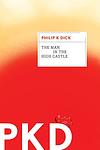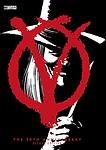The Greatest "Science fiction, Political Ideologies" Books of All Time
Click to learn how this list is calculated.
This list represents a comprehensive and trusted collection of the greatest books. Developed through a specialized algorithm, it brings together 300 'best of' book lists to form a definitive guide to the world's most acclaimed books. For those interested in how these books are chosen, additional details can be found on the rankings page.
Genres
Science fiction is a genre of literature that explores the potential consequences of scientific and other innovations on society and individuals. It often features futuristic or imaginary settings, advanced technologies, and scientific concepts that are not yet fully understood or realized. Science fiction can encompass a wide range of themes, including space exploration, time travel, artificial intelligence, and alternate realities. It is a genre that allows authors to speculate on the future of humanity and the impact of scientific progress on our lives.
The "Political Ideologies" category encompasses a diverse collection of books that delve into the broad spectrum of political beliefs, systems, and theories that have shaped human societies throughout history and continue to influence contemporary governance and social structures. This genre offers readers an exploration of the foundational principles, moral values, economic models, and visions for societal organization that underpin various political ideologies, such as liberalism, conservatism, socialism, communism, fascism, and anarchism, among others. It provides critical insights into how these ideologies have been conceptualized, their historical development, key proponents, and the practical implications of their implementation. Through comparative analysis and theoretical discourse, books in this category aim to enhance readers' understanding of the political landscape, encourage critical thinking about governance and policy, and foster informed civic engagement. Whether written by political scientists, philosophers, historians, or activists, these works serve as essential resources for anyone seeking to grasp the complexities of political thought and its impact on the world.
Countries
Date Range
Reading Statistics
Click the button below to see how many of these books you've read!
Download
If you're interested in downloading this list as a CSV file for use in a spreadsheet application, you can easily do so by clicking the button below. Please note that to ensure a manageable file size and faster download, the CSV will include details for only the first 500 books.
Download-
1. Nineteen Eighty Four by George Orwell
Set in a dystopian future, the novel presents a society under the total control of a totalitarian regime, led by the omnipresent Big Brother. The protagonist, a low-ranking member of 'the Party', begins to question the regime and falls in love with a woman, an act of rebellion in a world where independent thought, dissent, and love are prohibited. The novel explores themes of surveillance, censorship, and the manipulation of truth.
-
2. Brave New World by Aldous Huxley
Set in a dystopian future, the novel explores a society where human beings are genetically bred and pharmaceutically conditioned to serve in a ruling order. The society is divided into five castes, each with its specific roles. The narrative follows a savage who rejects the norms of this new world order and struggles to navigate the clash between the values of his upbringing and the reality of this technologically advanced, emotionless society. His resistance prompts a deep examination of the nature of freedom, individuality, and happiness.
-
3. Fahrenheit 451 by Ray Bradbury
In a dystopian future where books are banned and burned by the government to prevent dissenting ideas, a fireman named Guy Montag, whose job is to burn books, begins to question the society he serves. After a series of events, including meeting a free-thinking teenager and witnessing a woman choosing to die with her books, Montag begins to secretly collect and read books, leading to his eventual rebellion against the oppressive regime. The narrative serves as a critique of censorship, conformity, and the dangers of an illiterate society.
-
4. The Man in the High Castle by Philip K. Dick
Set in an alternate history where the Axis powers won World War II, this novel explores life in a world where the United States is divided into three parts: the Pacific States of America, controlled by Japan; the Rocky Mountain States, a neutral buffer zone; and the United States of America, controlled by Nazi Germany. The story follows several characters, including a jewelry designer, a trade minister, and a German secret agent, as they navigate this dystopian reality. The narrative is further complicated by the existence of a banned novel that depicts an alternate reality where the Allies won the war, causing characters to question their understanding of reality.
-
5. V for Vendetta by Alan Moore
"V for Vendetta" is a dystopian graphic novel set in a future totalitarian England. The story follows a mysterious, anarchistic vigilante known only as "V" who wears a Guy Fawkes mask and seeks to overthrow the oppressive government. The novel explores themes of freedom, oppression, and the power of ideas, as well as the moral complexities of vengeance and violence. It also delves into the personal journey of a young woman named Evey, who becomes V's unlikely ally.
Reading Statistics
Click the button below to see how many of these books you've read!
Download
If you're interested in downloading this list as a CSV file for use in a spreadsheet application, you can easily do so by clicking the button below. Please note that to ensure a manageable file size and faster download, the CSV will include details for only the first 500 books.
Download



